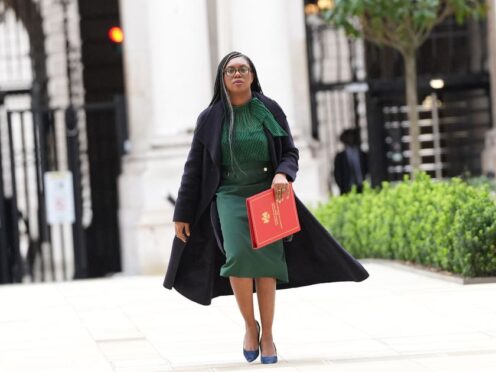Ministers are “dodging” scrutiny of its post-Brexit trade deals, a senior MP has said, after the Government refused to hold a substantive debate on a new agreement with Pacific nations.
Labour MP Liam Byrne, who chairs the Commons Business and Trade Committee, criticised the Government’s handling of the UK’s accession to the Comprehensive and Progressive Agreement for Trans-Pacific Partnership (CPTPP), saying MPs should have had more time to debate the treaty.
In a report published last month, Mr Byrne’s committee had called on the Government to allow debate on a “substantive motion” to ratify the CPTPP.
But in its response, published on Thursday, the Department for Business and Trade said there had already been extensive debate on the subject and the Constitutional Reform and Governance Act (CRaG) provided the option for resolving against ratification if MPs wanted to.
The department said: “A Government commitment to guaranteed substantive debates under CRaG would fundamentally alter the nature of the scrutiny framework, undermine the royal prerogative and remove flexibility.”
The Committee had also called for an updated assessment of the impact of the CPTPP deal, saying Trade Secretary Kemi Badenoch had “resiled from the models used by her department to estimate the benefits in the published impact assessment”.
The impact assessment published by the department said the CPTPP agreement was expected to increase the UK’s GDP by around 0.09% per year, although Ms Badenoch said she was “very sceptical” of modelling and claimed it was based on “very old data”.
The Government rejected this recommendation, saying modelling only showed the “direction of impacts and broad orders of magnitude” rather than “highly precise estimates of what will happen”.
It added that the department would carry out “on-going monitoring and evaluation” of all its trade deals and would publish a comprehensive evaluation of CPTPP after five years.
But Mr Byrne said the response was “conclusive proof” that mechanisms for scrutinising trade deals were “no longer fit for purpose in this new age”.
He said: “This emerging world is full of new dilemmas and trade-offs as (we) now weigh the prizes of trade growth against the potential price of new risks to our security. That is why MPs must be allowed to debate all those issues in the round and come to a balanced overall judgment.
“With CPTPP, MPs have been denied this opportunity – at the same time the Government has apparently cast aside its own analysis of the treaty’s benefits. So, should we just believe it’s right for the UK because the Government told us so?
“We can only conclude that ministers are dodging full and proper scrutiny.”
A Department for Business and Trade spokesperson said: “We have fulfilled our commitments at every stage of negotiations and given Parliament ample opportunity to scrutinise CPTPP.
“Our accession has been debated on a number of occasions, including during the passage of the CTPPP Act, and Parliamentarians have been able to scrutinise the full treaty text since it was laid before Parliament in July 2023.
“MPs also had the opportunity to debate the agreement at Report stage last week, ahead of the conclusion of the CRaG scrutiny period.”
